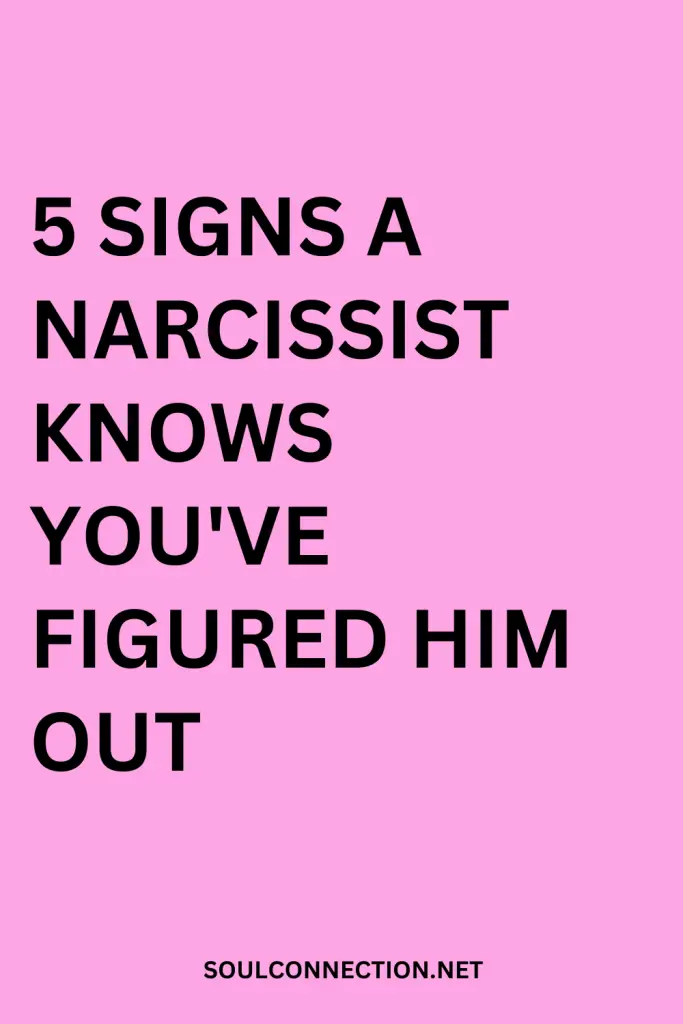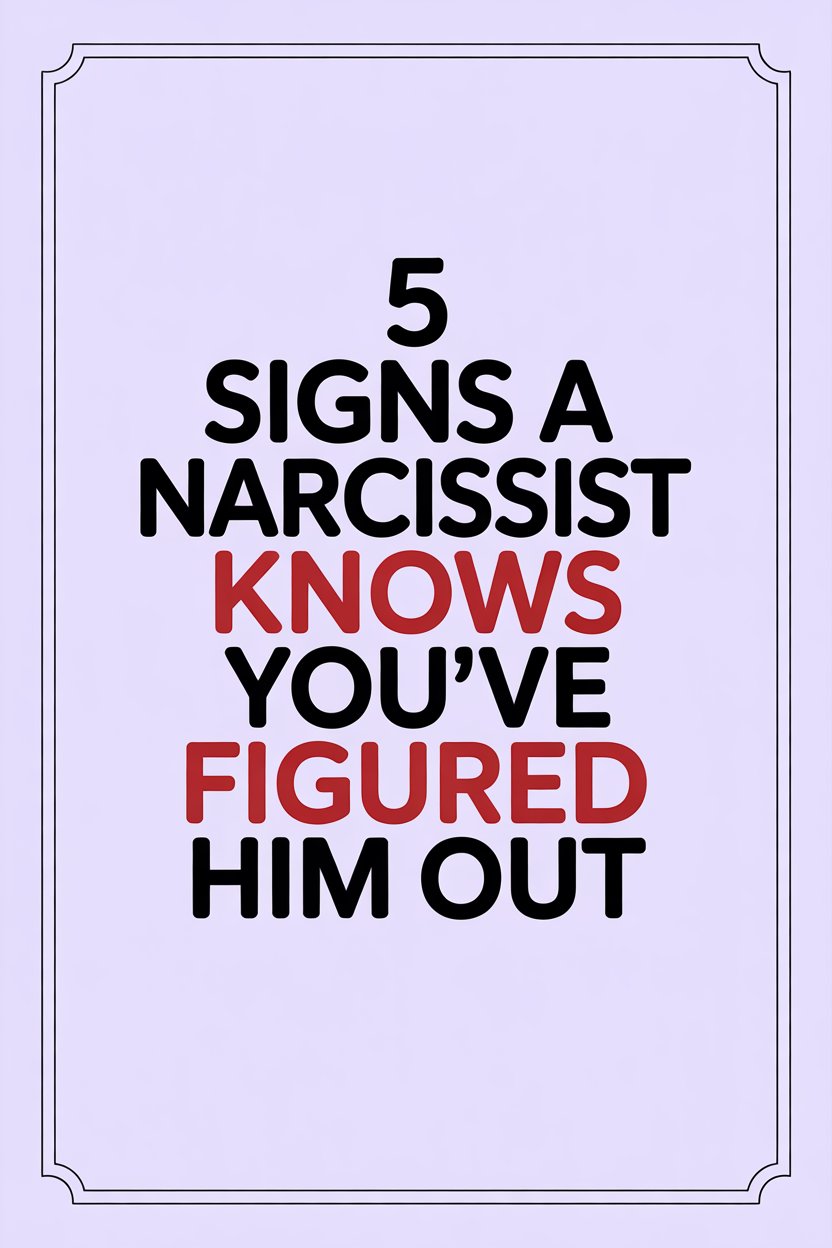The moment you realize your partner’s relentless charm is more about control than care, congratulations—your life just became a psychological thriller.
Discovering the narcissist’s playbook means you’re now public enemy number one in their one-man show.
But what happens when the mask slips, and they know you know? Here are five classic signs the gig is up and you’re now considered the most dangerous person in the room—someone who sees them.
1. The Sudden Personality Whiplash
One minute, you’re being showered with compliments and nostalgic tales about how you’re the love of their life. Next thing you know, you’re suddenly the villain in a melodrama you never auditioned for.
When a narcissist senses you’re onto their tricks, expect a whiplash of behavior. The charm evaporates, replaced by icy indifference or, if you’re lucky, a bit of melodramatic rage.
Ever felt like your partner’s mood shifted so fast you needed a neck brace? That’s no coincidence. Their emotional about-face is a panic move. If their manipulation isn’t landing, why waste the energy faking empathy?
Think of it as narcissistic efficiency: why bother when the jig is up?
This isn’t just moodiness. It’s a calculated withdrawal of affection, a test to see if you’ll grovel for the love you once had. Spoiler: you’re not supposed to.
When the mask falls, the coldness is designed to make you question yourself and come crawling back. Resist the urge, and watch them squirm.
2. Gaslighting Level: Olympic Gold
Narcissists love rewriting history, but when you’ve started fact-checking their greatest hits, the gaslighting intensifies. Suddenly, you’re told you’re “imagining things,” “too sensitive,” or “misunderstanding” every interaction.
They might even use your newfound awareness against you: “You’re just insecure because of your own issues.”
This is the narcissist’s last-ditch effort to protect their world of alternative facts. Their storytelling gets wilder, sometimes even comical.
Did they really claim you were the one who forgot their birthday, even though you organized the entire dinner? Welcome to the Gaslight Olympics.
When the manipulation stops working, the stories get more desperate. Sometimes, the sheer absurdity is hard not to laugh at—if it wasn’t so infuriating.
The key is not to argue the details (you can’t win at their game), but to trust your own memory. It’s the only reliable narrator in this soap opera.
3. Playing the Ultimate Victim Card
When all else fails, it’s time for Oscar-worthy sorrow. Suddenly, the narcissist is suffering—only because of your “unfair” suspicions or “cruel” accusations. Tears may flow.
Grand speeches will be made about how wounded they feel that you “don’t trust them.” Friends and family might get involved, recruited for a little impromptu drama.
This isn’t genuine vulnerability; it’s strategic self-pity. By flipping the script, they hope you’ll feel guilty and rush back into their arms, apologizing for ever doubting their intentions.
If public sympathy can be garnered, all the better—now you’re not just a meanie, you’re a meanie with witnesses.
Here’s where boundaries are essential. If the crocodile tears seem endless and your guilt meter is spiking, remember: empathy is your superpower, not your kryptonite. If you can see through the act, you’re already one step ahead.
4. Smear Campaign Season Begins
Suddenly, mutual friends stop calling. Someone’s cousin sends you a cryptic text. At work, a colleague mentions they heard you’re “not yourself lately.” Curious, isn’t it?
When a narcissist feels their cover is blown, they preemptively start controlling the narrative. You’re now the villain in stories they’re spreading.
This isn’t garden-variety gossip. It’s more like a targeted PR campaign, except you don’t have a crisis team. From subtle digs to outright lies, the smear campaign is designed to isolate you, recruit allies, and make you question your own reality.
Their goal: if people doubt you, they’ll never doubt the narcissist.
Tempting as it may be to try and clear your name everywhere, pick your battles. Those who truly know you won’t fall for the act; those who do weren’t really on your team to begin with. Protect your peace, not your public image.
5. The Silent Treatment or a Vanishing Act
Last up, the classic: radio silence. Having failed to control your perception, the narcissist may try to punish you with absence. No calls. No texts.
Maybe even a dramatic “I can’t talk to you when you’re like this” as the curtain falls. This isn’t a mature boundary—it’s emotional exile.
For some, the silent treatment is a test: will you chase? For others, it’s the precursor to a vanishing act, where the narcissist disappears to greener pastures (or, let’s be frank, new supply).
Either way, you’re left to stew in confusion and, if things go according to their plan, regret.
But here’s the kicker: silence is the best thing that can happen. It’s the narcissist’s last move when all else fails. If they ghost you, they aren’t winning—they’re out of tricks.
Use the quiet to rebuild, reflect, and remind yourself that peace is not the same as loneliness.
When the Curtain Closes
Catching a narcissist off guard by seeing through the act is no small feat. The fallout can be dizzying, but it’s also the beginning of freedom.
Their reactions—be it rage, withdrawal, or Oscar-worthy victimhood—are all proof that your clarity is kryptonite to their illusions.
Focus on grounding yourself in reality, surrounding yourself with people who actually care, and holding those boundaries like your life depends on it. Because, in a sense, it does.
And if you find yourself tempted to reach out, apologize, or otherwise mend a bridge that was built on quicksand—pause.
You’ve already done the hardest part: you saw what was really going on. Now, give yourself permission to choose peace over chaos, reality over spin, and your own voice over their script.
Curtain’s down on the narcissist’s show; time for a story that stars you.


